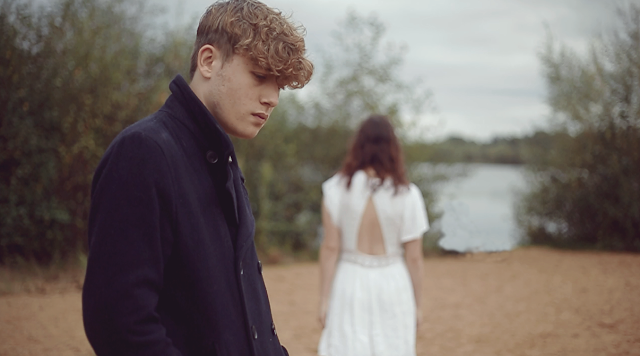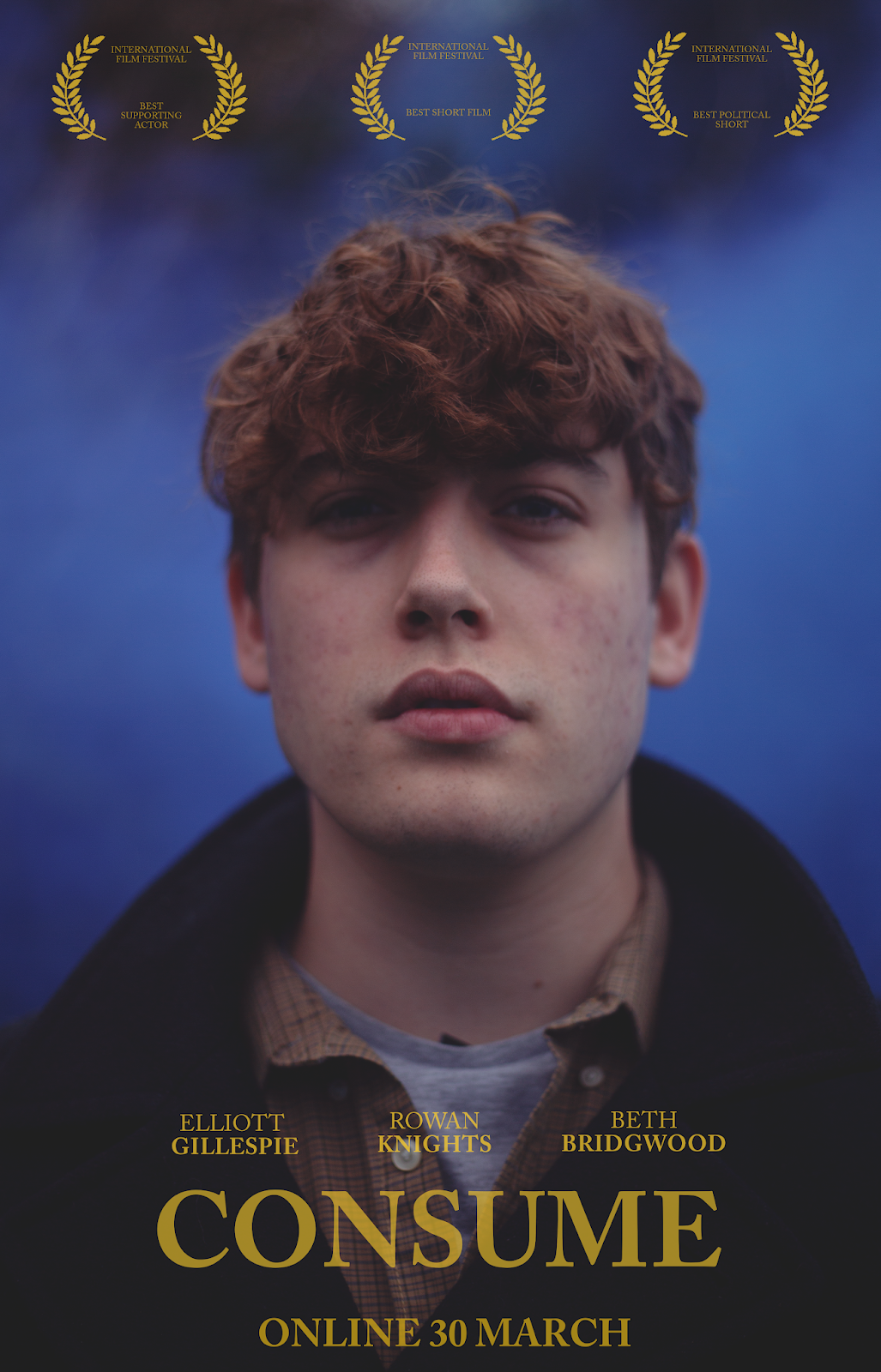Focalization
What is Focalization?
The term focalization refers to the point-of-view from which a story is told. This doesn't mean the narration of a film or novel as this is something entirely separate. Focalization occurs in a narrative where all information presented to the viewer reflects the subjective perspective of a particular character.
Based on which character a film is focalized through, the way the narrative and characters are presented may vary as the audience sees what the character sees. This means the character may warp the audience's reading of a film. For example, imagine a generic horror film; a killer is lurking in the shadows waiting to pounce and kill a victim. If the scene is focalized through the killer, the audience are placed in a complicit and predatory role. They are fully aware of what is going to happen. However, if the scene is focalized through the victim, who is unaware of the killer's presence, then the audience are unaware too. If they are oblivious to the killer's presence then their attack will shock them. On the other hand, if the sequence is not focalized through any particular character and gives an 'omniscient', objective perspective, then the audience will know that the victim is in danger. This creates tension effectively.
An audience can tell who the focalizer of a film is based on what the camera shows them. For example, POV and over-the-shoulder shots give a direct view as to what the character can see, the audience sees it from their perspective. Not only this, but the camera limits the audience's vision and position-of-knowledge to what the character knows.
The character filters what the audience sees and understands, this leads them to interpreting scenes in a way different to if another character had served as the focalizer.
There are three common methods that directors use to craft a focalisation:
The term focalization refers to the point-of-view from which a story is told. This doesn't mean the narration of a film or novel as this is something entirely separate. Focalization occurs in a narrative where all information presented to the viewer reflects the subjective perspective of a particular character.
Based on which character a film is focalized through, the way the narrative and characters are presented may vary as the audience sees what the character sees. This means the character may warp the audience's reading of a film. For example, imagine a generic horror film; a killer is lurking in the shadows waiting to pounce and kill a victim. If the scene is focalized through the killer, the audience are placed in a complicit and predatory role. They are fully aware of what is going to happen. However, if the scene is focalized through the victim, who is unaware of the killer's presence, then the audience are unaware too. If they are oblivious to the killer's presence then their attack will shock them. On the other hand, if the sequence is not focalized through any particular character and gives an 'omniscient', objective perspective, then the audience will know that the victim is in danger. This creates tension effectively.
An audience can tell who the focalizer of a film is based on what the camera shows them. For example, POV and over-the-shoulder shots give a direct view as to what the character can see, the audience sees it from their perspective. Not only this, but the camera limits the audience's vision and position-of-knowledge to what the character knows.
The character filters what the audience sees and understands, this leads them to interpreting scenes in a way different to if another character had served as the focalizer.
There are three common methods that directors use to craft a focalisation:
- Internal Focalization: "Camera = Character". This is when the camera shows as much as the character knows. It is seen from the character's perspective.
- External Focalization: "Camera > Character" This is when the camera can see more than the character can
- Zero Focalization - "Camera < Characters" This is when the camera says less than the character knows.
How Have You Employed Focalization?
My short film is focalized through the protagonist, Egon. The audience understands this because both the camera and the narrative predominantly follow him. This is excluding brief interludes involving scenes that Egon doesn't bear witness to, for example, Preacher's speeches or the terrorist attack. However, because Egon's characteristics and values has an influence over the audience, he still manages to warp how the audience reads these scenes.
We can see that Egon is the focalizer almost immediately through the camera work. For example, in the introduction of Bleedingheart's character, the camera tracks Egon's movement, only for him to turn his head and Bleedingheart be revealed sitting by the bank of the river. This pattern is constantly repeated throughout the film. If Bleedingheart was the focalizer, the scene would play out differently; the camera would remain on Bleedingheart by the riverbank, focused prominently on her, and Egon would stumble into the background of the shot.
How does focalisation have an effect on the audience's understanding of the film, then? It does because Egon places his thoughts and feelings onto the audience because they see everything from his perspective, the audience becomes Egon. Egon is impressionable, passionate and has very strong opinions on the events of the film. Because the audience are seeing it from Egon's eyes, they take on his beliefs. For example, the Preacher is shown as the antagonist and is villainised by the audience. If the film was focalized through the Preacher, however, the audience would see Bleedingheart and Egon as villains. His hateful ideas would be justified and the audience would support him and it would become an entirely different film with an entirely different message.
With this theory in mind, it is clear to see why I chose Egon as the focalizer. Firstly, he begins the film as an outsider: he has no involvement with the events prior to the film. This makes him a neutral character, he hasn't taken sides. Therefore, when he eventually chooses his side, it appears that he's based his choice on reason; he isn't influenced by his own experience and bias. It makes his side seem like the right side.
Secondly, the audience being able to connect with Egon will make them support his decision to side with Bleedingheart and support the message of the film. The focalization helps me ingrain my political message into the viewers of the film.
We can see that Egon is the focalizer almost immediately through the camera work. For example, in the introduction of Bleedingheart's character, the camera tracks Egon's movement, only for him to turn his head and Bleedingheart be revealed sitting by the bank of the river. This pattern is constantly repeated throughout the film. If Bleedingheart was the focalizer, the scene would play out differently; the camera would remain on Bleedingheart by the riverbank, focused prominently on her, and Egon would stumble into the background of the shot.
How does focalisation have an effect on the audience's understanding of the film, then? It does because Egon places his thoughts and feelings onto the audience because they see everything from his perspective, the audience becomes Egon. Egon is impressionable, passionate and has very strong opinions on the events of the film. Because the audience are seeing it from Egon's eyes, they take on his beliefs. For example, the Preacher is shown as the antagonist and is villainised by the audience. If the film was focalized through the Preacher, however, the audience would see Bleedingheart and Egon as villains. His hateful ideas would be justified and the audience would support him and it would become an entirely different film with an entirely different message.
With this theory in mind, it is clear to see why I chose Egon as the focalizer. Firstly, he begins the film as an outsider: he has no involvement with the events prior to the film. This makes him a neutral character, he hasn't taken sides. Therefore, when he eventually chooses his side, it appears that he's based his choice on reason; he isn't influenced by his own experience and bias. It makes his side seem like the right side.
Secondly, the audience being able to connect with Egon will make them support his decision to side with Bleedingheart and support the message of the film. The focalization helps me ingrain my political message into the viewers of the film.




Comments
Post a Comment